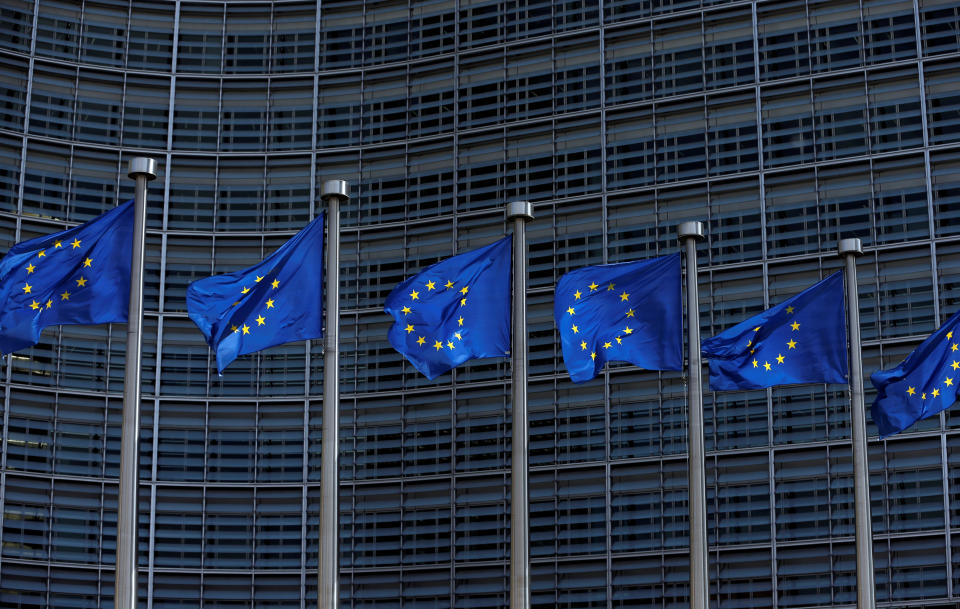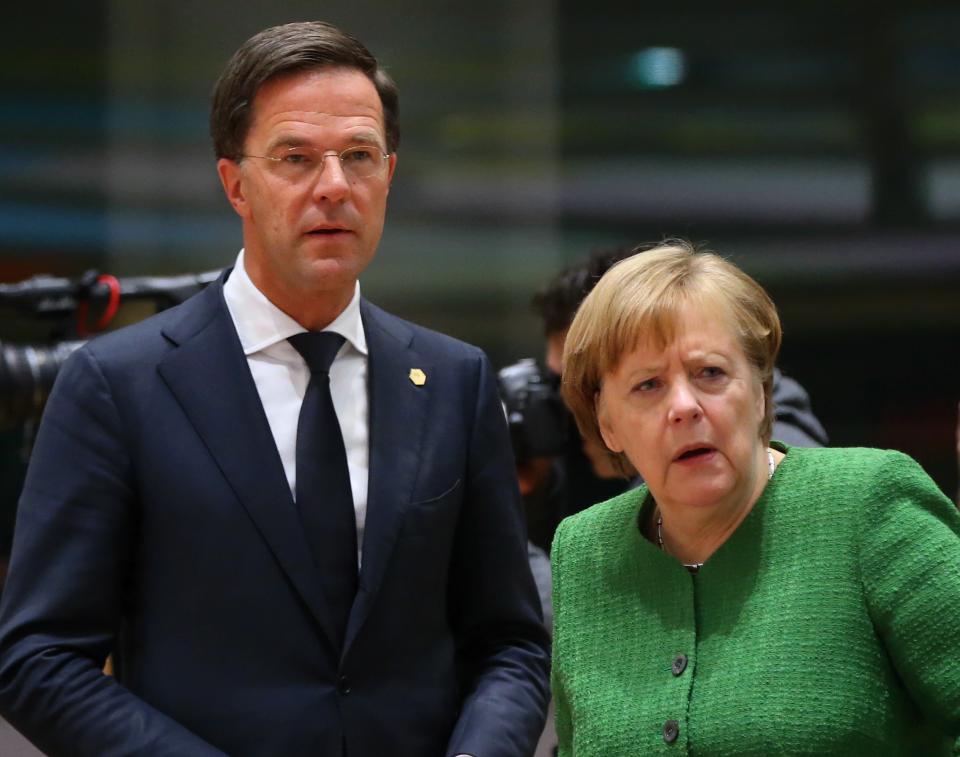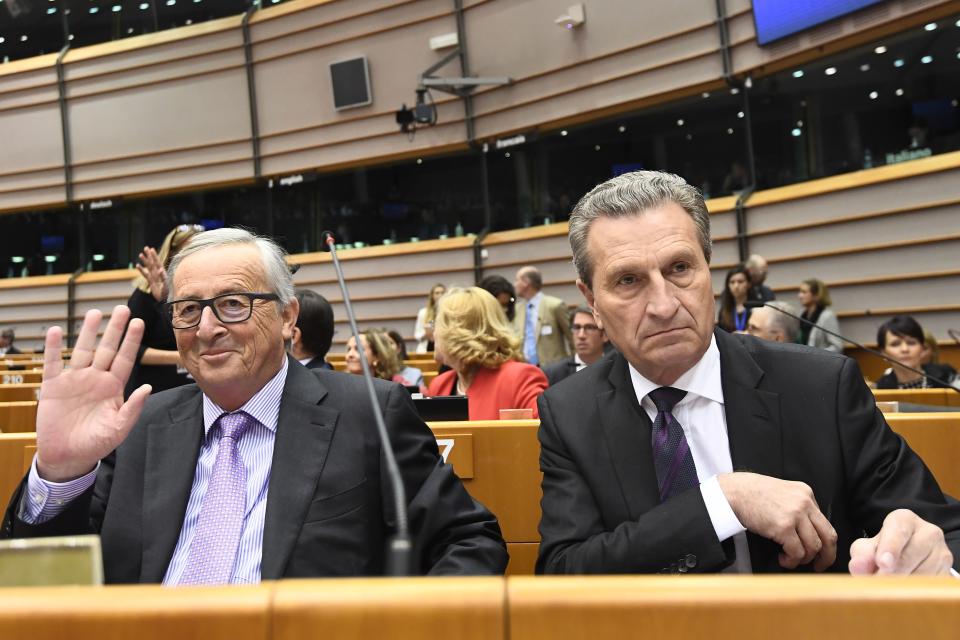EU plan to make members pay more after Brexit meets resistance

EU member states have been asked to pay more into the bloc’s budget to fill a black hole left by Brexit – but the call is already meeting resistance in some capitals.
The UK is the EU’s second biggest financial contributor and its departure next year will cost Brussels £8.8 billion-a-year.
EU budget Commissioner Gunther Oettinger likened Brexit to a family losing a “rich uncle” as he set out the EU’s post-Brexit budget in Brussels today.
Despite that, he proposed an increase in overall spending to €1.14 trillion between 2021 and 2027 – up from €1.09 trillion over the previous seven years.
Mr Oettinger said the Brexit shortfall and new spending would be met through some controversial cuts and increased contributions from members.
Setting out his plans to the European Parliament, he said: “There were two basic problems that we were faced with – the gap being left by the departure of the United Kingdom and the new tasks that we all recognise should be resolved at a European level…combating terrorism and border control and new social challenges.
“These two issues are being addressed. On the one hand by saving and on the other by calling on the member states to pay in slightly more than they have done to date.”
The European Commissions insists its policies will still cost each citizen less than a cup of coffee per day.
But the plan has been dubbed “unacceptable” by the Dutch government, who say the bloc should tighten its belt after Brexit.
“A smaller EU should have a smaller budget,” said the country’s Prime Minister, Mark Rutte.

CUTS
The most contentious decision was a 5% cut for the Common Agricultural Policy – the EU’s most expensive policy which has been criticised for benefiting wealthy landowners, including the Queen.
The Cohesion Policy – the EU’s fund to reduce economic inequality across the continent – will be reduced by 7% in a move that will primarily hit countries in eastern Europe.
The cut to CAP was described as “unthinkable” by the French government and the reduction in the solidarity spending was criticised by left-wing MEPs and trade unions.
Mr Oettinger insisted the cuts were at an “acceptable level” considering Brexit.
“If a rich uncle dies you can’t expect the number of presents under the tree to be as expensive or as many as they always were,” he said.
FUNDING
The budget will require member states to make an increased financial contribution – up to 1.1% of gross national income from 1.03%.
The German government estimates that will cost them £8.8 billion-a-year more.
In a joint statement, German finance minister Olaf Scholz and Foreign Minister Heiko Maas said: “We are ready to take responsibility for strengthening the European Union – but this requires a fair burden-sharing of all Member States.”
The EU also wants to raise more of its own resources by taking a share of money levied by national governments because of EU policies.
For example, they propose to take 20% of revenues raised through the Emissions Trading Scheme which forces industry to pay for greenhouse gas emissions over a certain level.
The budget also includes a plastic tax which would see member states give the EU €0.80 per kilo of non-recycled plastic waste.

SPENDING
Those policies will pay for spending increases on research, digital innovation, young people and security.
The budget includes a trebling of funds for policies aimed at better managing migration, including an increase from 1,200 to 10,000 staff for the EU’s border agency. That is coupled with a similar size increase in foreign aid.
There’s also a double of spending in programme for young people, including €700 million to pay for a free rail pass for every EU citizen turning 18.
Manfred Weber, the leader of the European Parliament’s centre-right group, said free rail tickets represented a “clear sign that the Commission is taking young people seriously.”
But UKIP MEP Patrick O’Flynn said: “The European Commission has chosen with this financial plan to live in dream land – to pretend its second largest net contributor isn’t leaving.”
The budget presented today will need to be approved unanimously by EU heads of state, which is unlikely based on the initial reactions.

 Yahoo Finance
Yahoo Finance 